On the second anniversary of Hong Kong’s Umbrella Movement, a look back at its most iconic moments
On Sept. 28, 2014, tens of thousands of Hong Kongers took to the streets to protest against Beijing’s decision over how the city’s leader would be elected in 2017. The pro-democracy movement, originally known as ”Occupy Central,” disrupted Hong Kong’s busiest districts for over two months and changed the city’s political landscape for ever. Two years on, young faces who grew out of the protests have become elected legislators, a decisive moment for a city that is embracing local identities and even independence from China.
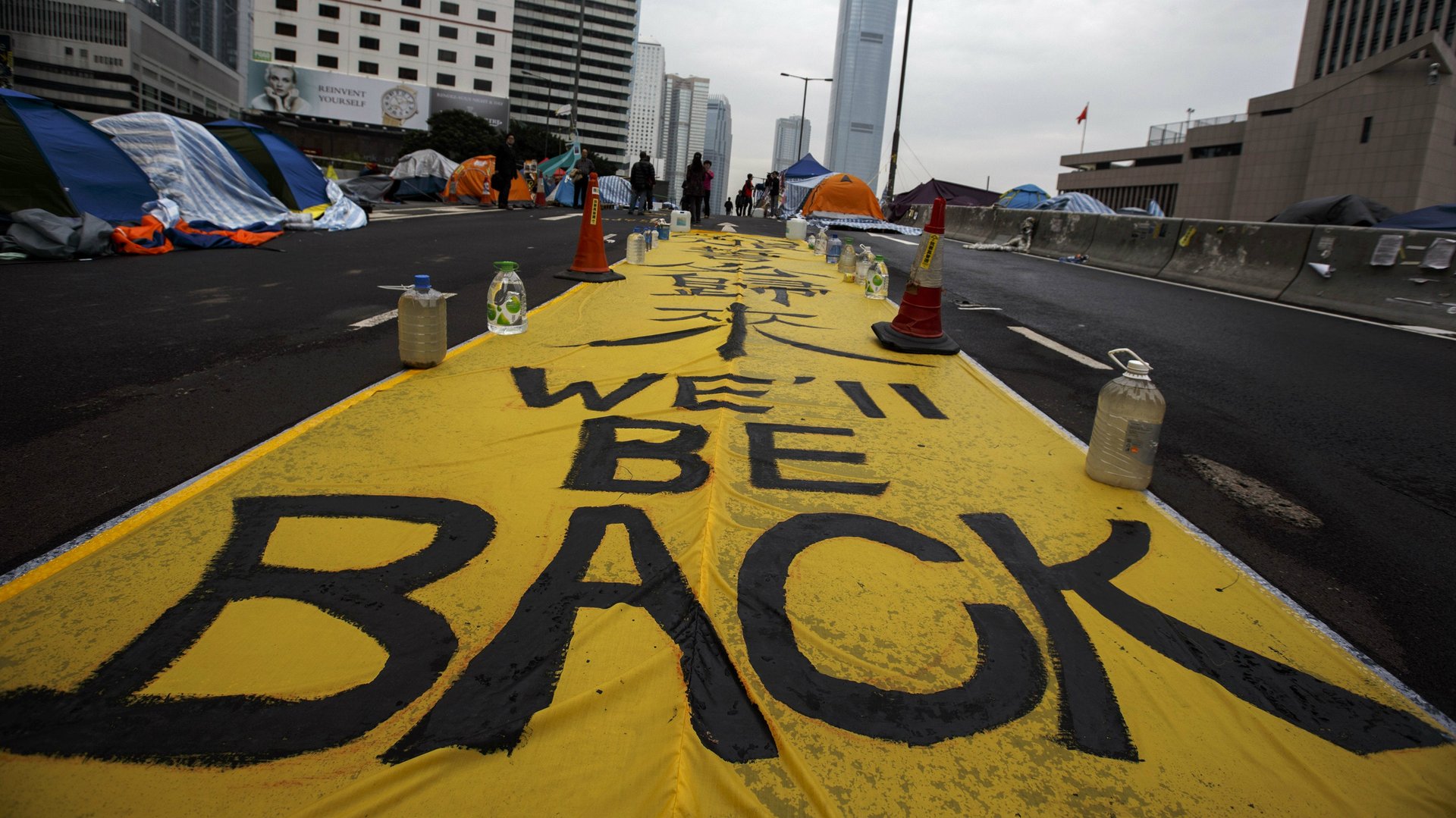

On Sept. 28, 2014, tens of thousands of Hong Kongers took to the streets to protest against Beijing’s decision over how the city’s leader would be elected in 2017. The pro-democracy movement, originally known as ”Occupy Central,” disrupted Hong Kong’s busiest districts for over two months and changed the city’s political landscape for ever. Two years on, young faces who grew out of the protests have become elected legislators, a decisive moment for a city that is embracing local identities and even independence from China.
Today is the second anniversary of the start of the Occupy protests. Here’s the key events of the 79-day movement, in photos:
On Sept. 22 2014, thousands of Hong Kong secondary and university students kicked off a weeklong boycott to protest against Beijing’s restrictive proposal for how the city elects its top official, or chief executive. The boycott was a prelude to Occupy Central, a civil disobedience movement proposed by Benny Tai, a legal academic, that had been in the works for months. The movement was slated to start on Oct. 1, China’s National Day.
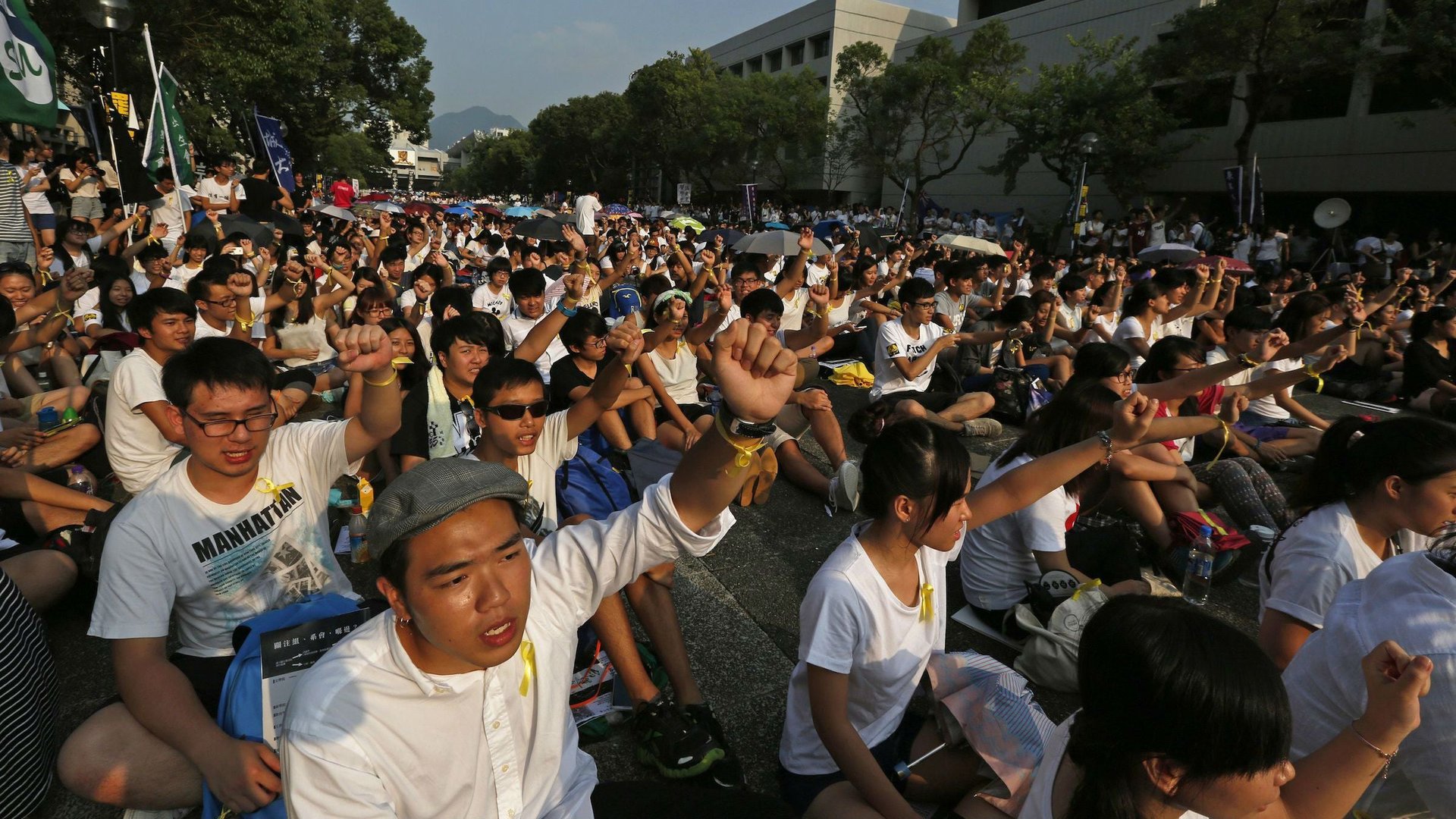
At the end of the class boycott on Sept. 26, a group of students, including members of the protest group Scholarism, scaled the fence of Civic Square, a space next to the government offices that had previously been open to the public. They occupied the area overnight, and were pepper sprayed and arrested the next morning. Thousands continued to pour into the area in the Admiralty district in support of the students the next day.
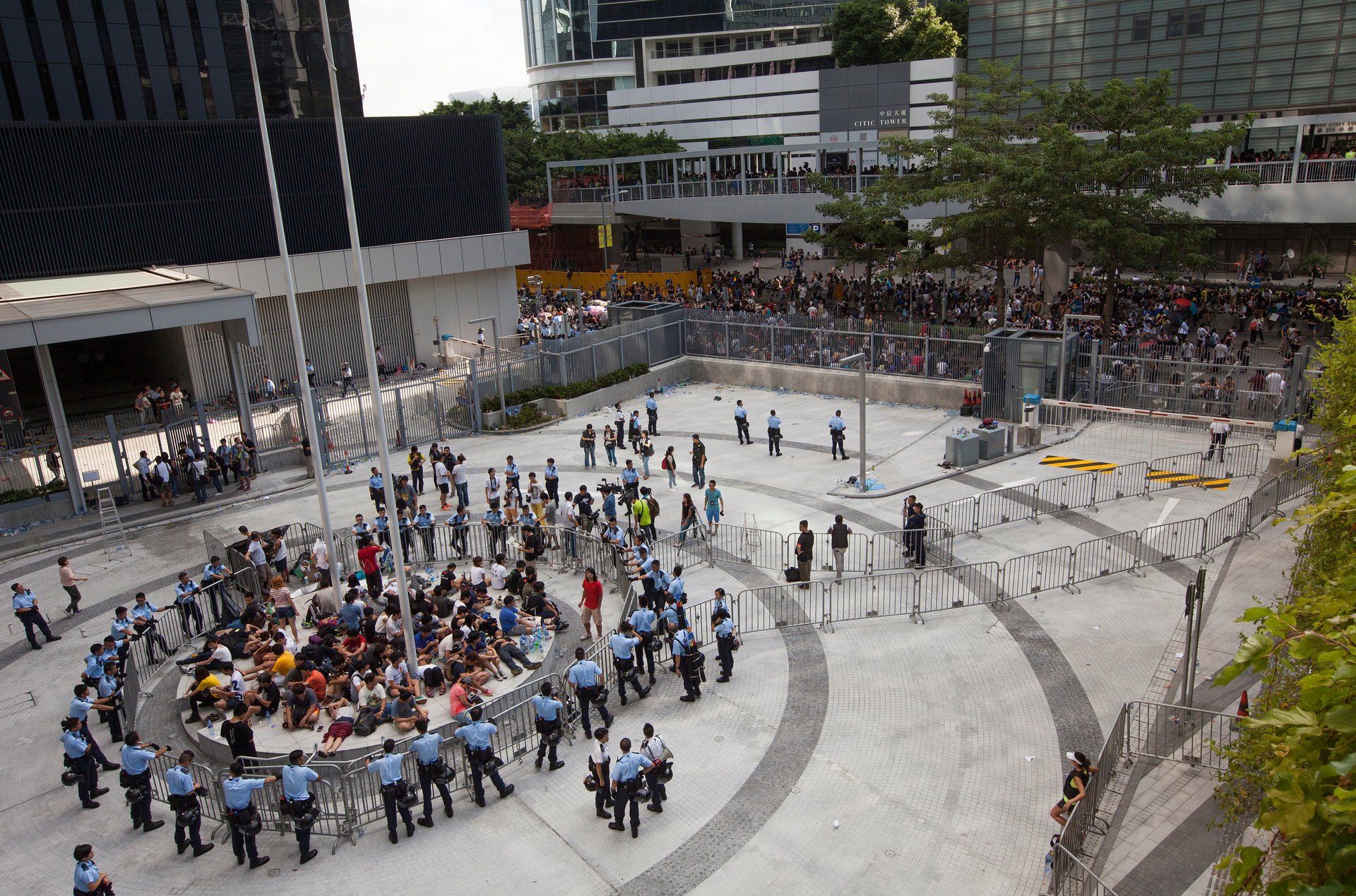
The protests extended into Sept. 28. That morning, tens of thousands of demonstrators surged the streets of Admiralty, home to the city government’s headquarters and legislature. Riot police clashed with protestors and fired tear gas.
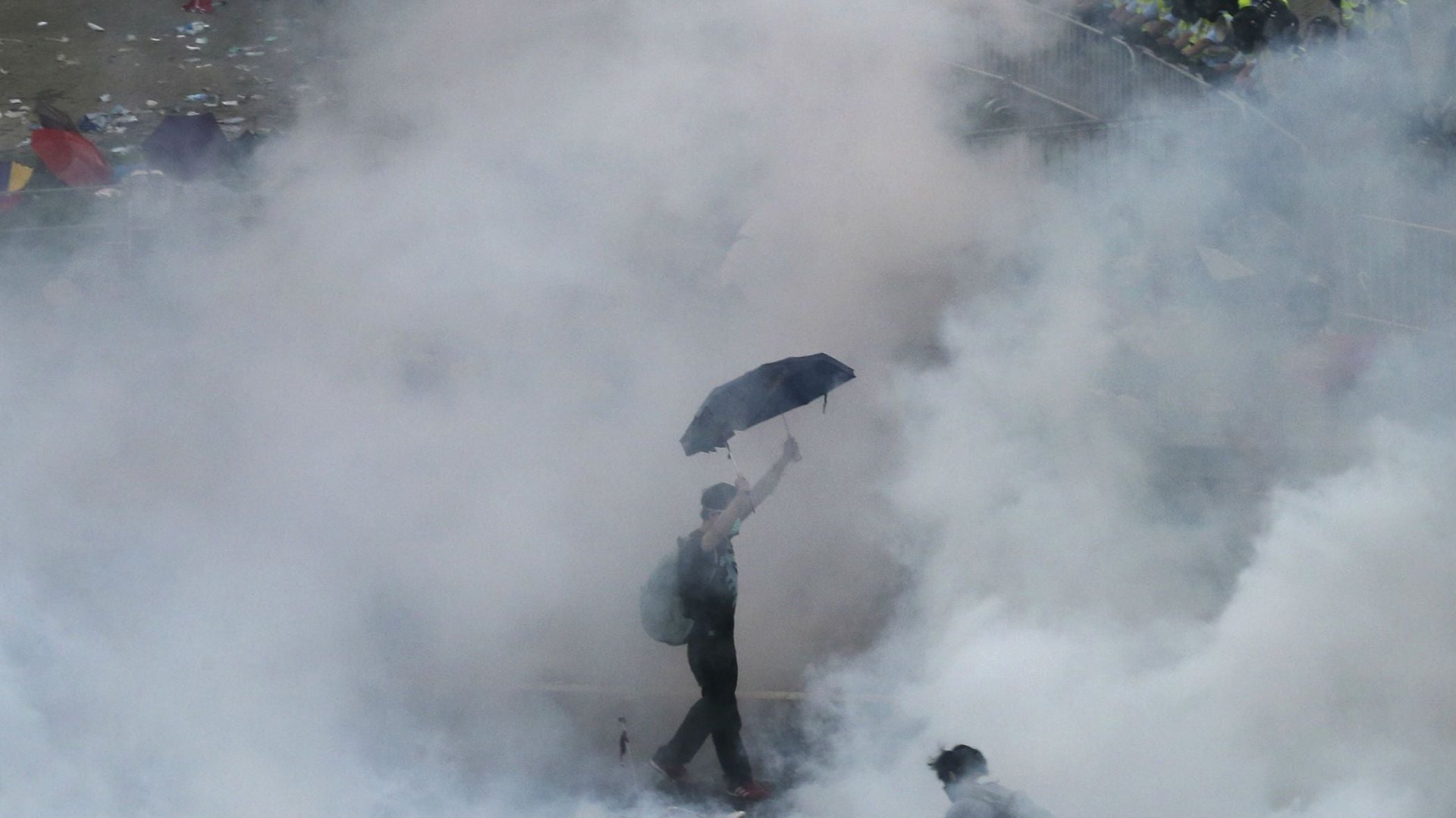
That only brought out more crowds as the evening went on.
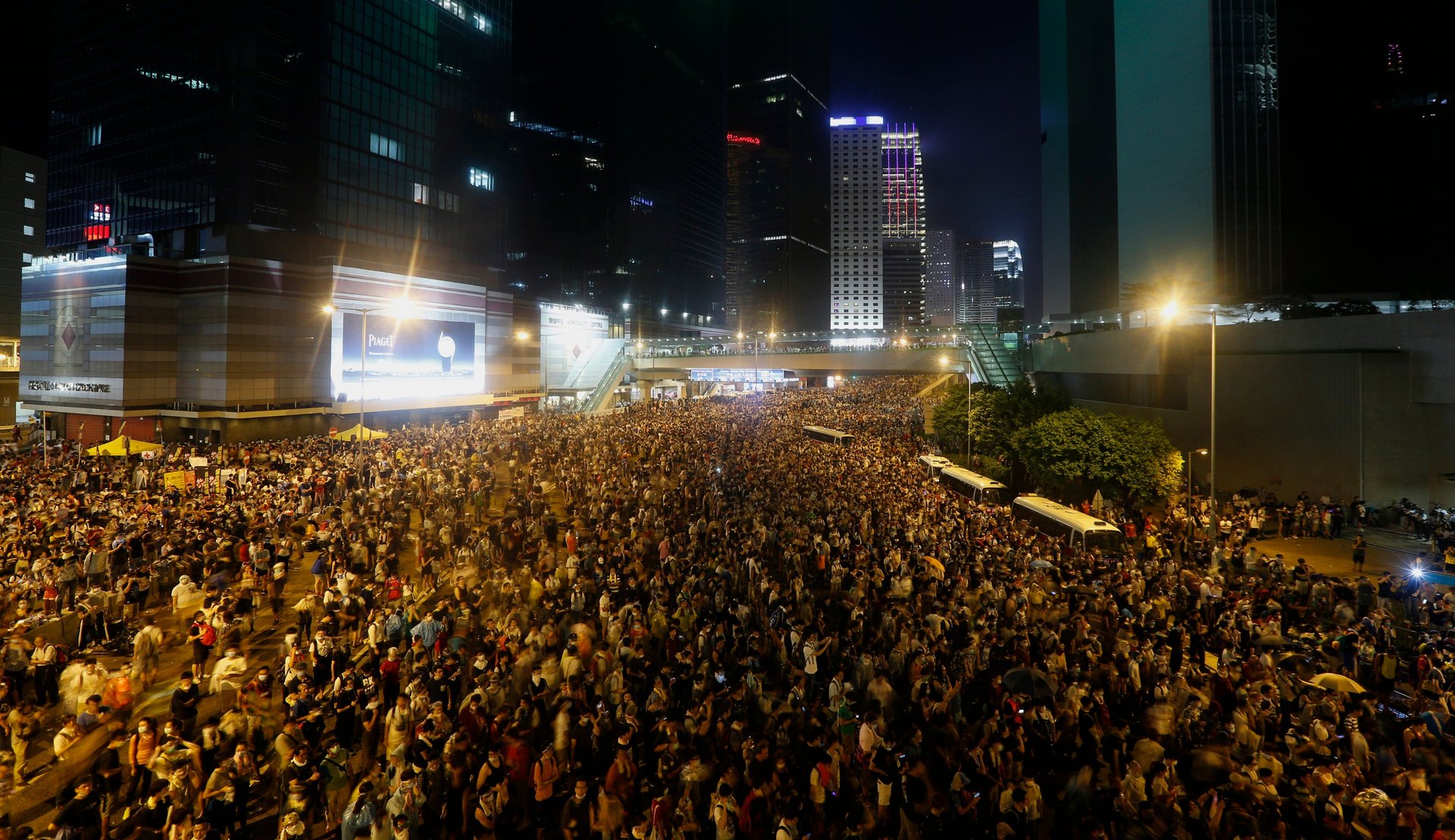
Parents and grandparents joined students in Central, and the crowds swelled over the next 24 hours:
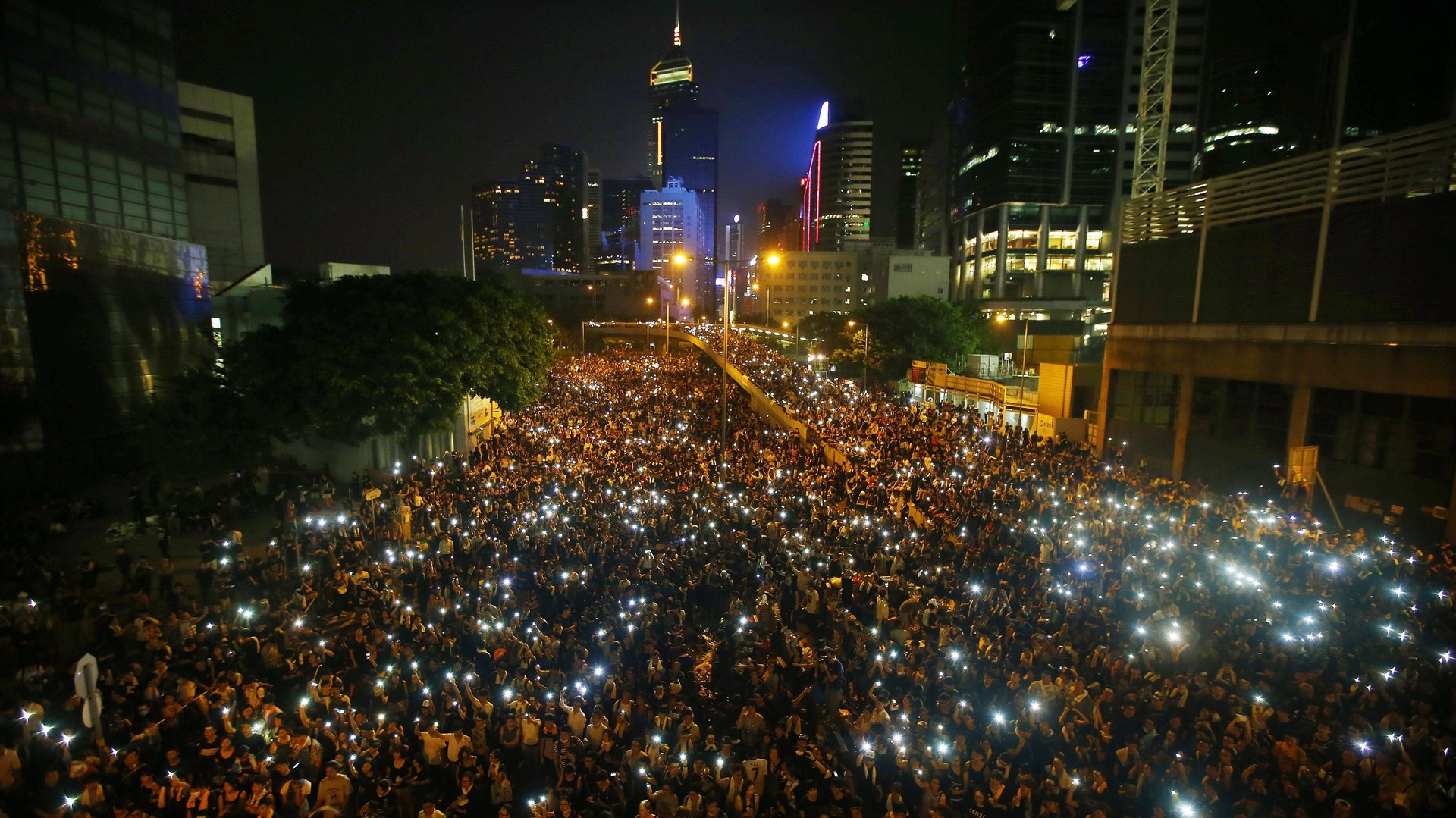
Two other major protest sites quickly followed in the Mong Kok and Causeway Bay neighborhoods. Three key downtown areas of Hong Kong were effectively shut down.
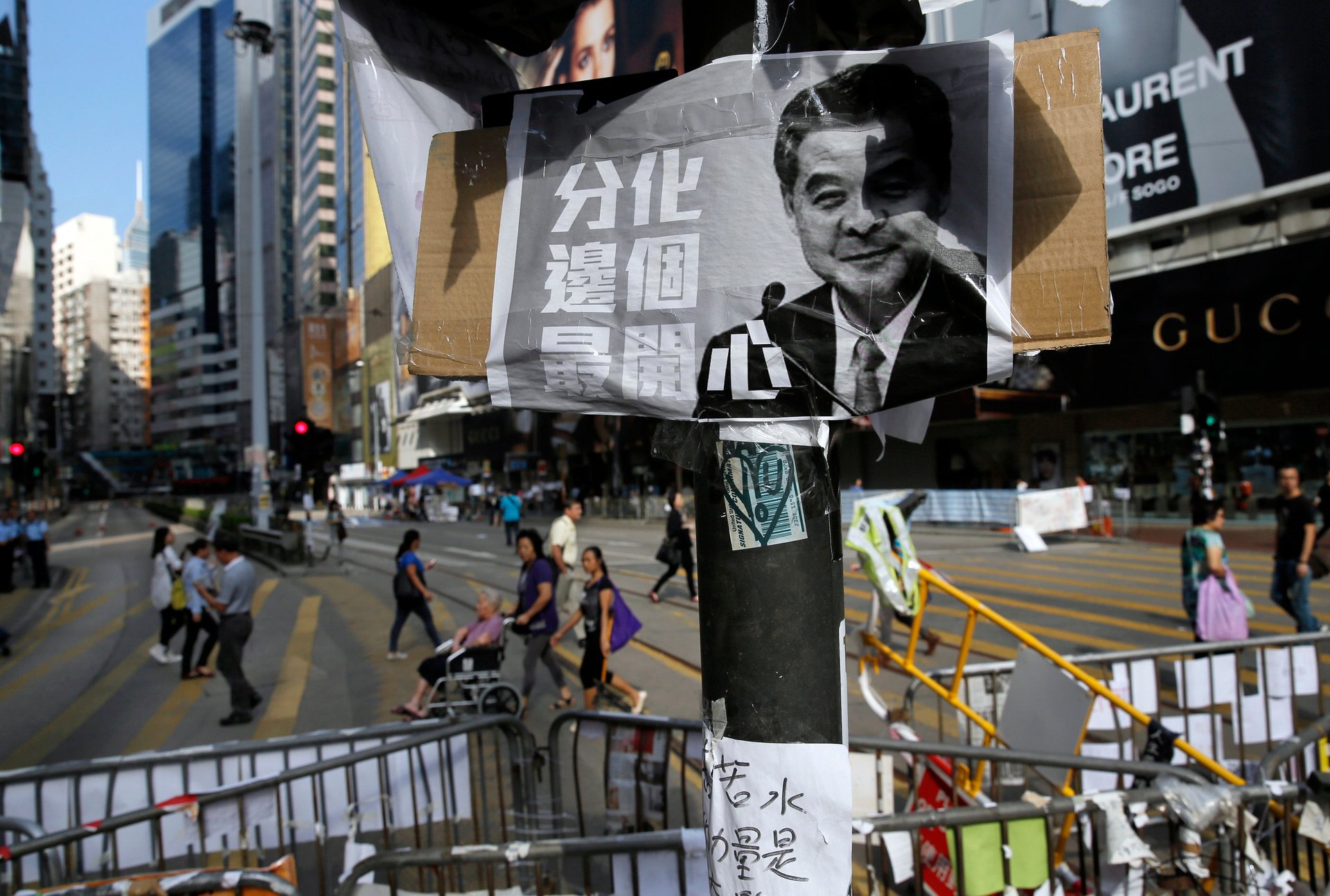
The umbrella, which was initially used by protesters to defend themselves against tear gas and pepper spray from the police, became a symbol of defiance. The protests also became known as the Umbrella Movement.
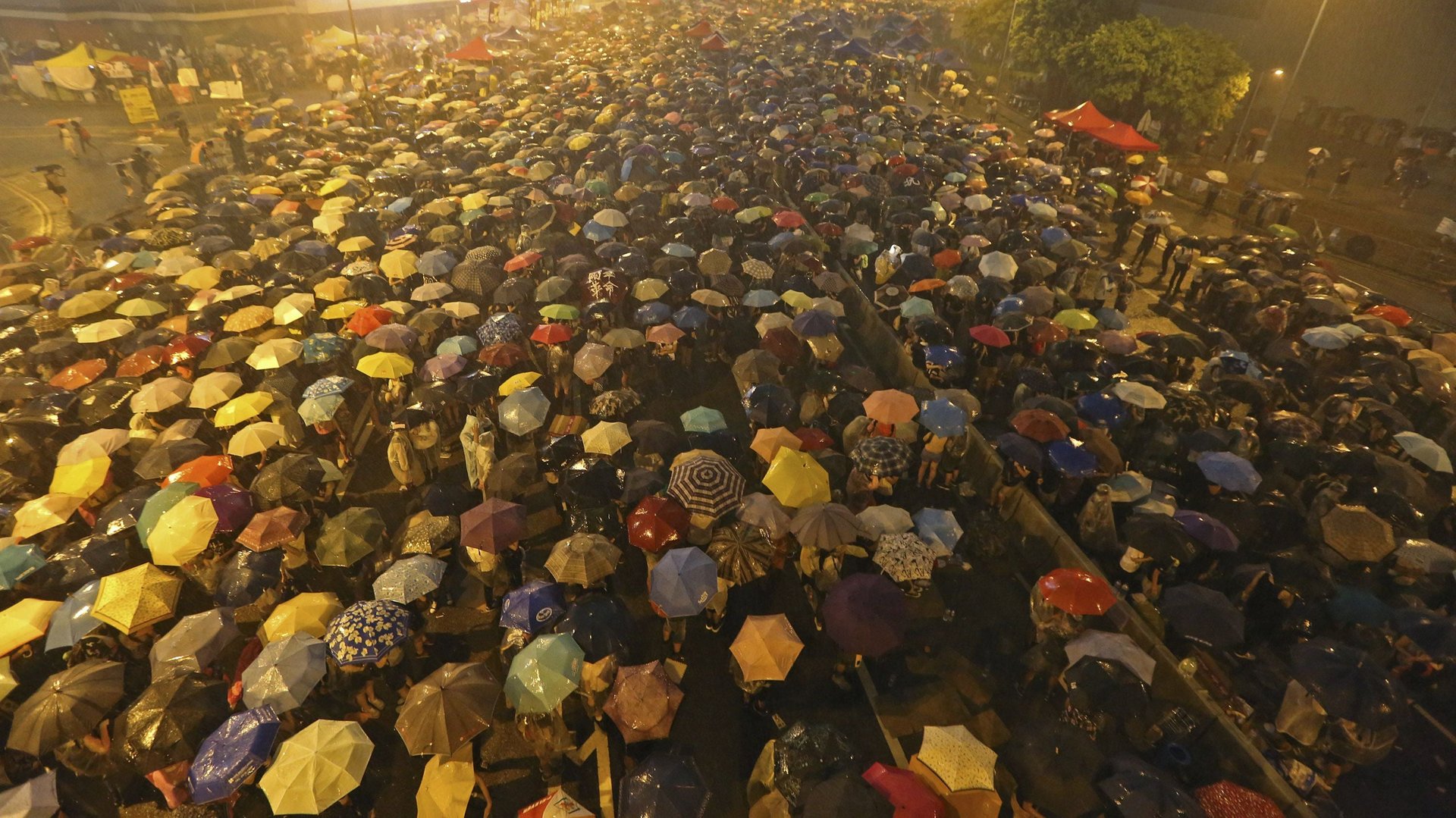
Umbrellas also inspired artwork…
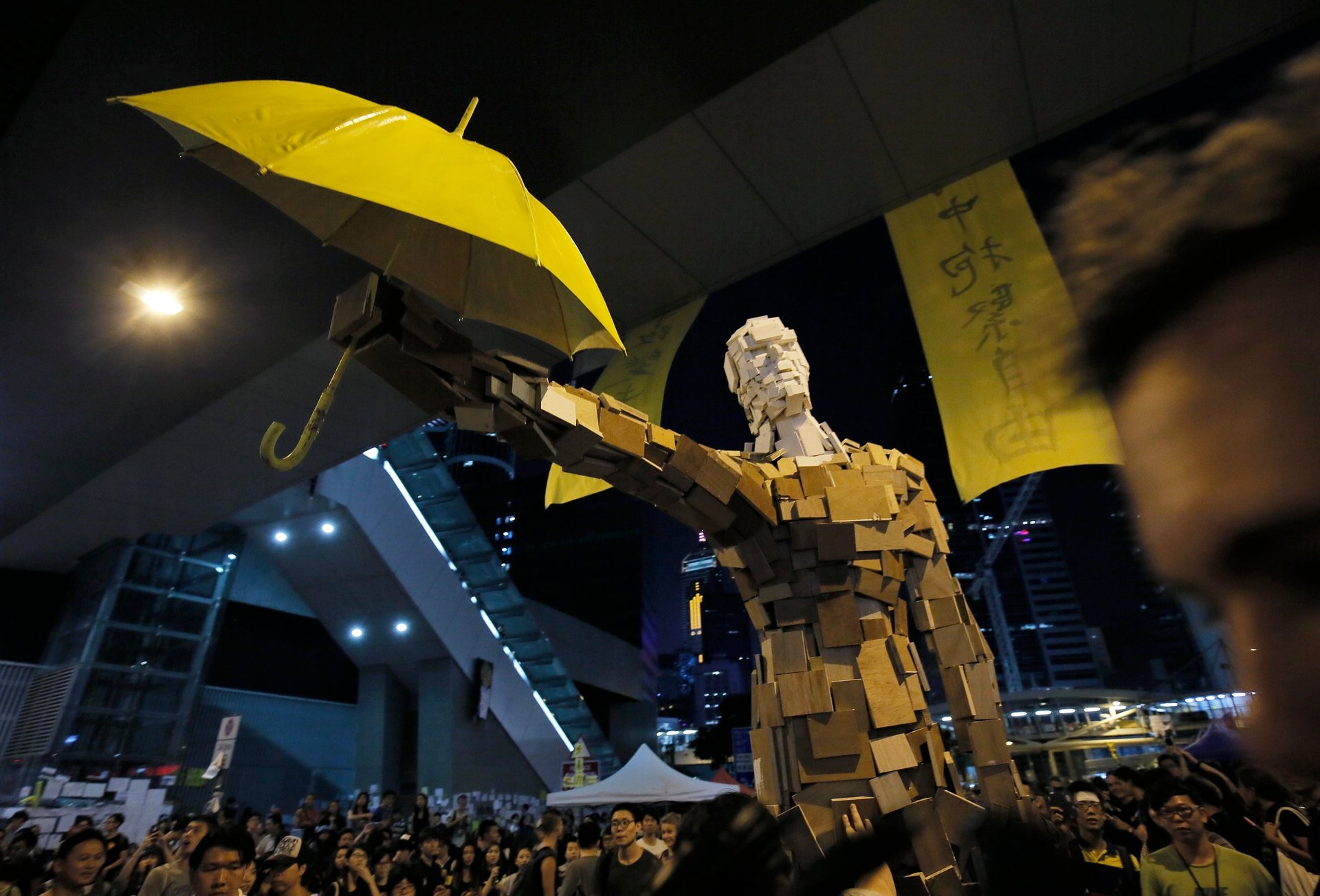
… including this one featuring Chinese president Xi Jinping.
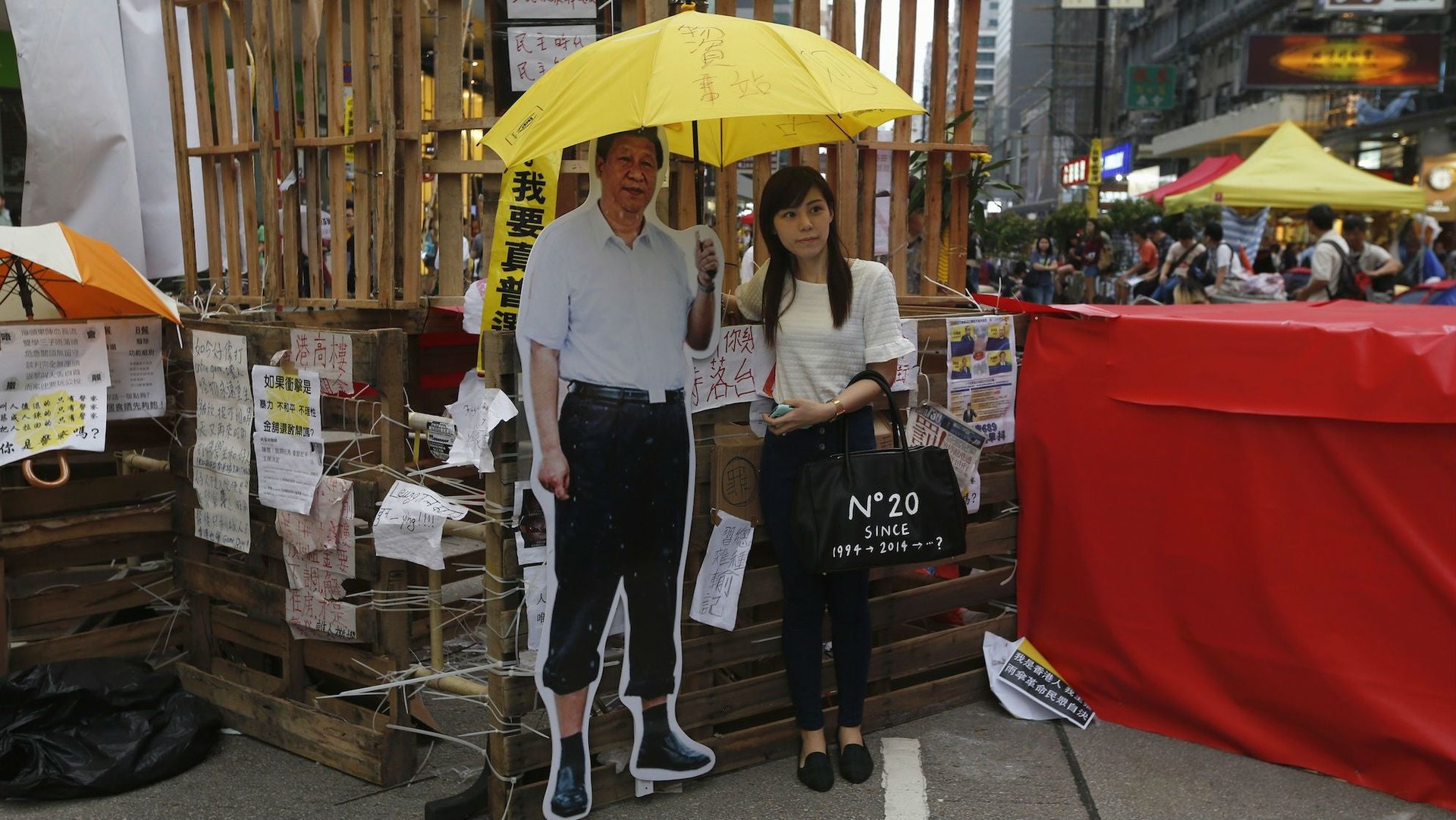
Supporters left thousands of messages:
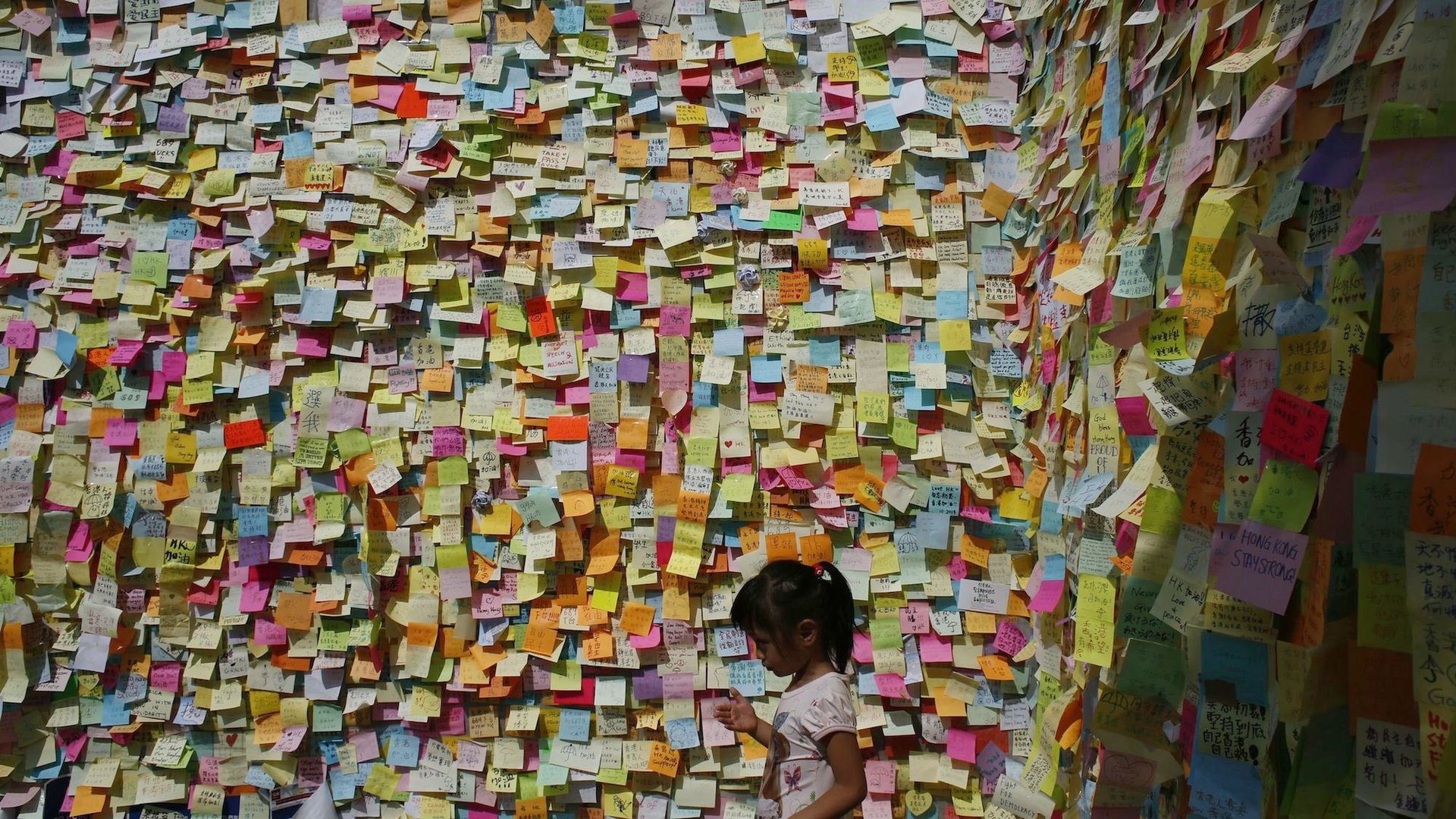
While businessmen and women commuted through the empty streets of central Hong Kong:
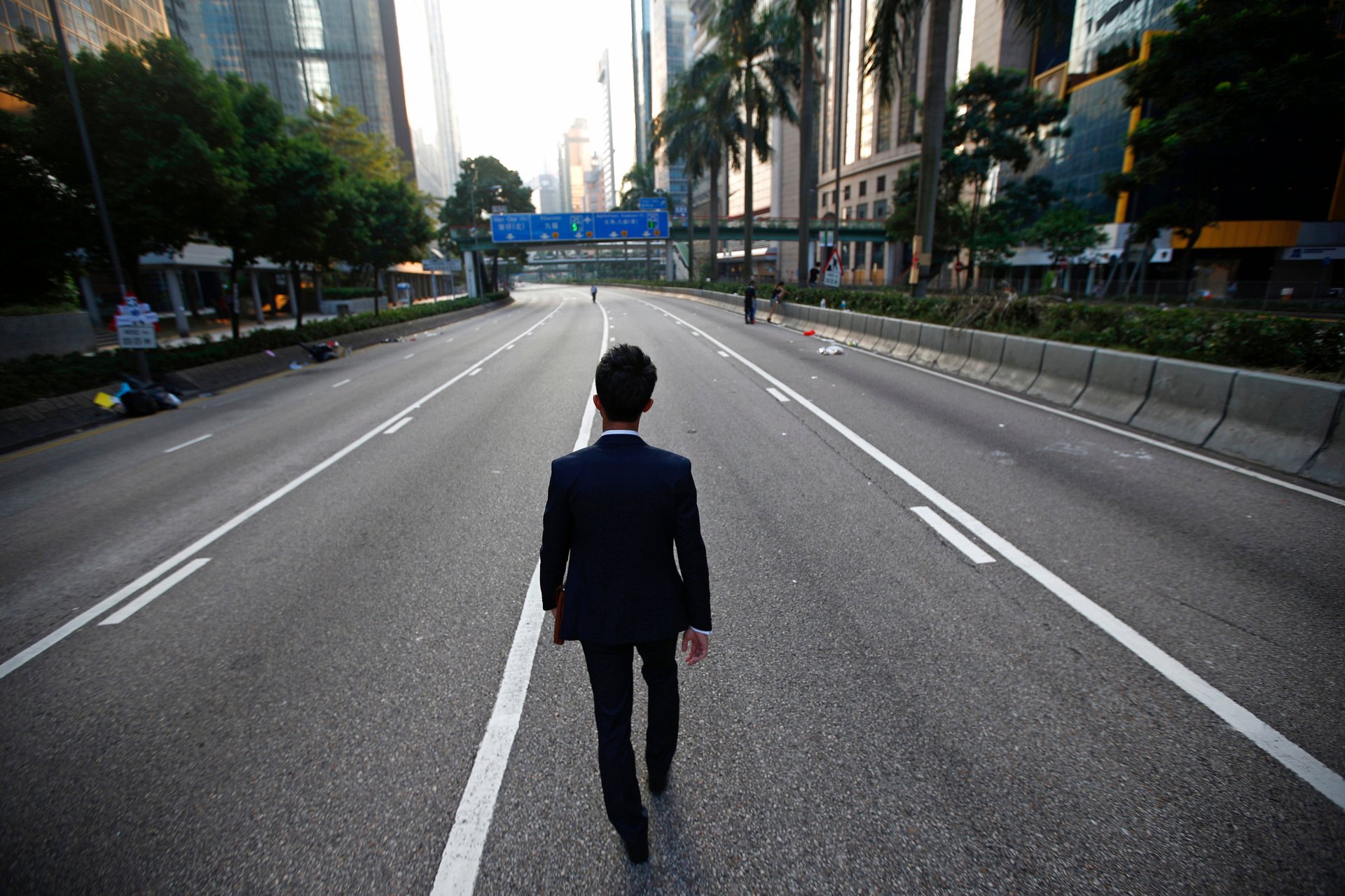
On Oct. 3, gangs of anti-Occupy and pro-Beijing protesters descended on Mong Kok, harassing and physically assaulting supporters of Occupy.
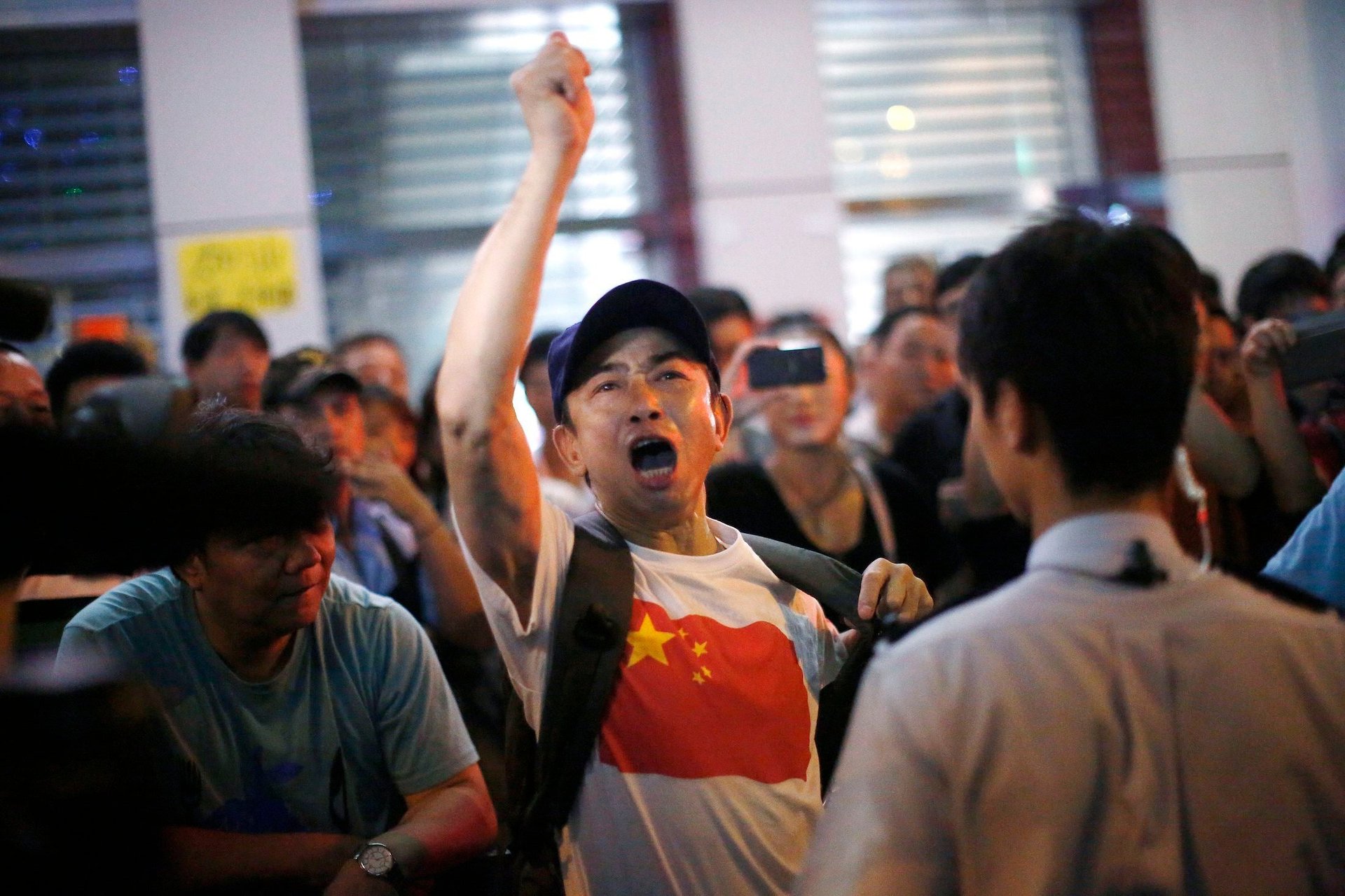
On Oct. 14, police violently cracked down on hundreds of protesters as they attempted to occupy a tunnel near the government headquarters. During the incident, a group of policemen were filmed by television crew kicking and beating a protester in a dark corner. Both the protester, Civic Party member Ken Tsang, and the seven police, were charged one year later.
Many also said that the Umbrella Movement may have been the politest protest ever. Protesters at the Admiralty camp, which included many teenagers or college students, set up tents to stay overnight, wrote signs to apologize for the traffic shutdown, and recycled garbage at the site. There was even a study zone for students, with electricity and wifi.

On Oct. 21, several student protest leaders from the university group the Hong Kong Federation of Students met with government officials for a televised debate for the first time. Nothing came out of the talks.
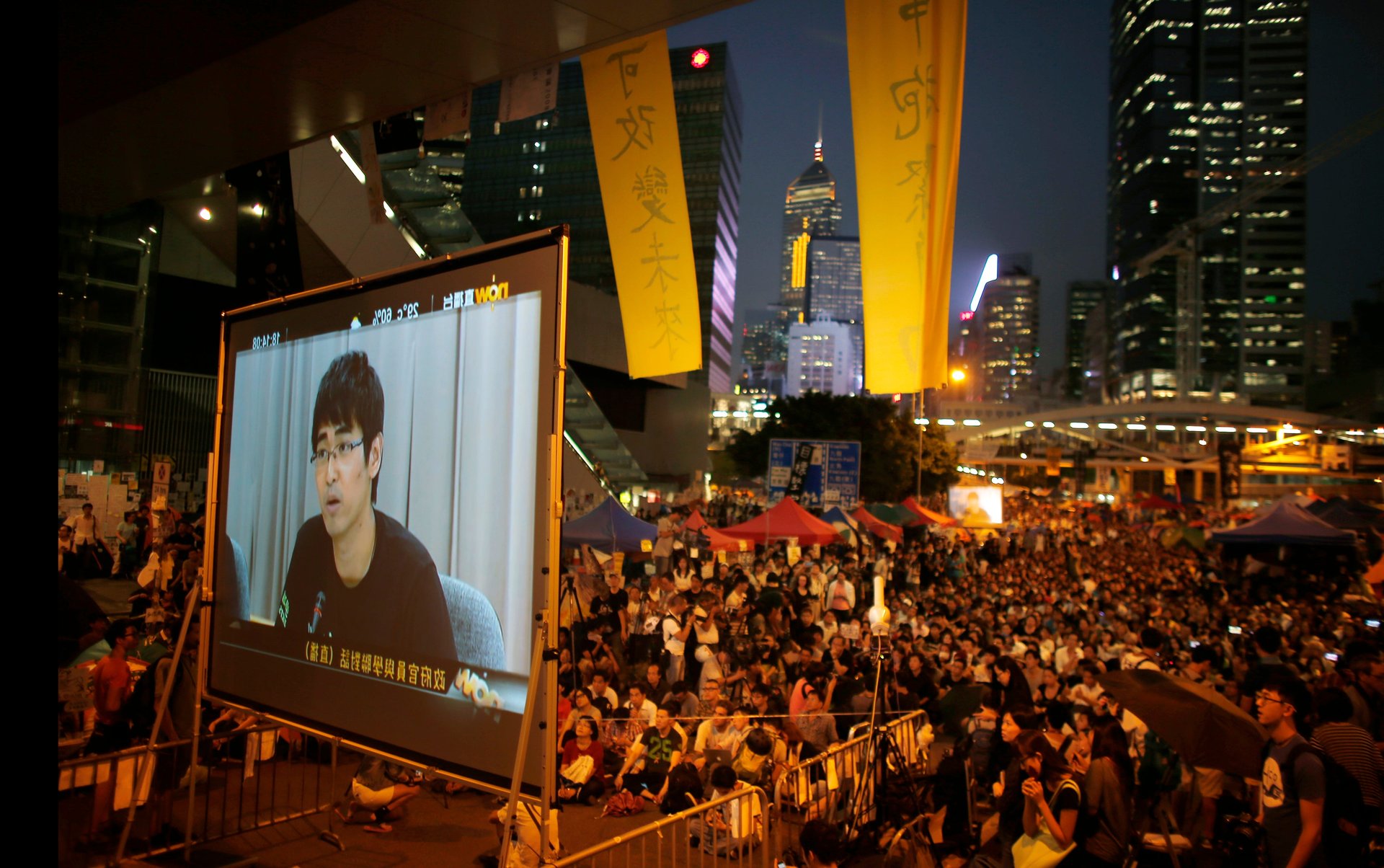
On Oct. 23, a large banner reading ”I want true universal suffrage” was hung up on Hong Kong’s iconic and heavily symbolic Lion Rock mountain.
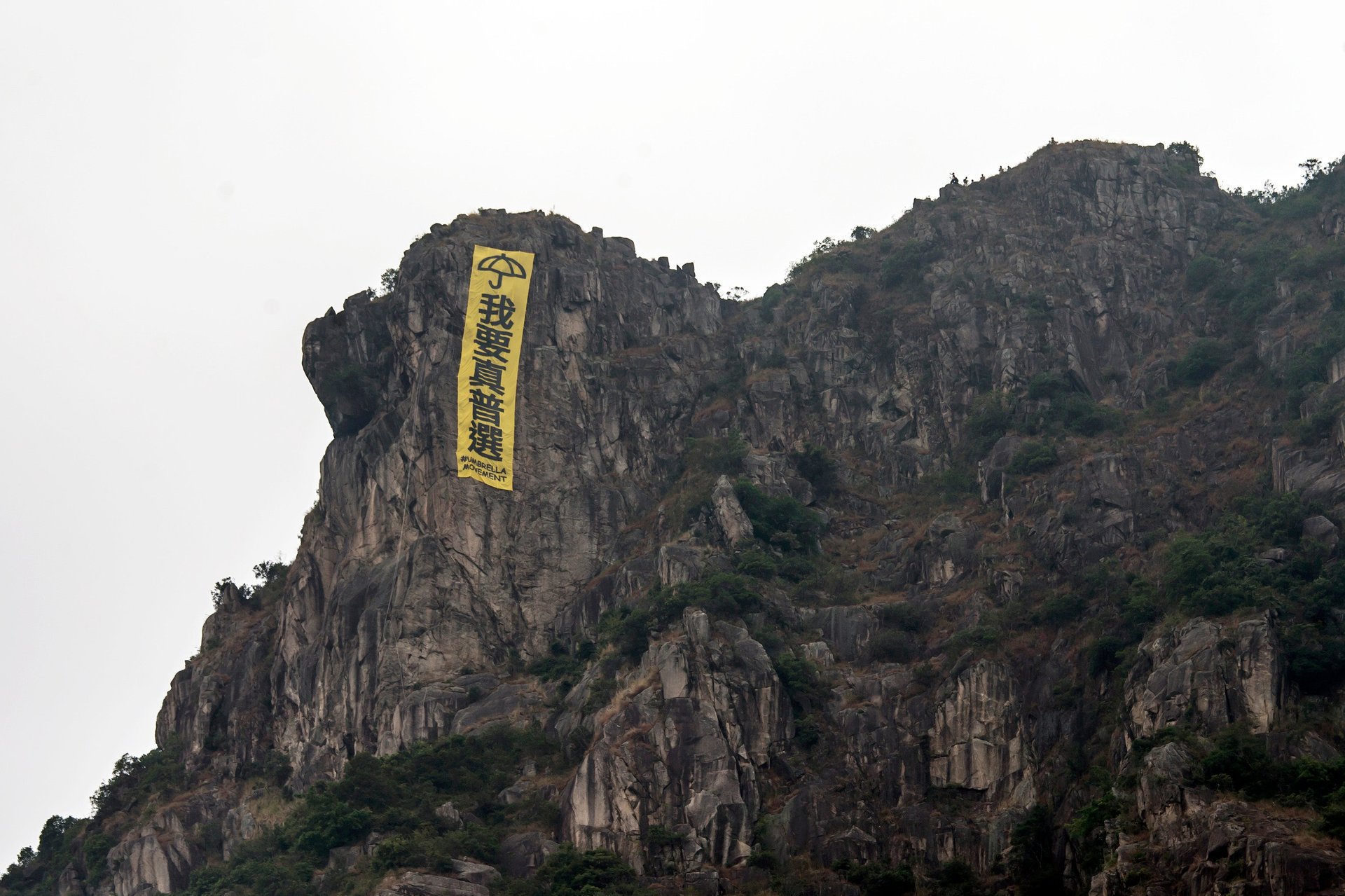
On Nov. 18, court-appointed bailiffs cleared part of the protest camp at Admiralty, after an injunction was granted to a nearby building’s owner by the High Court.
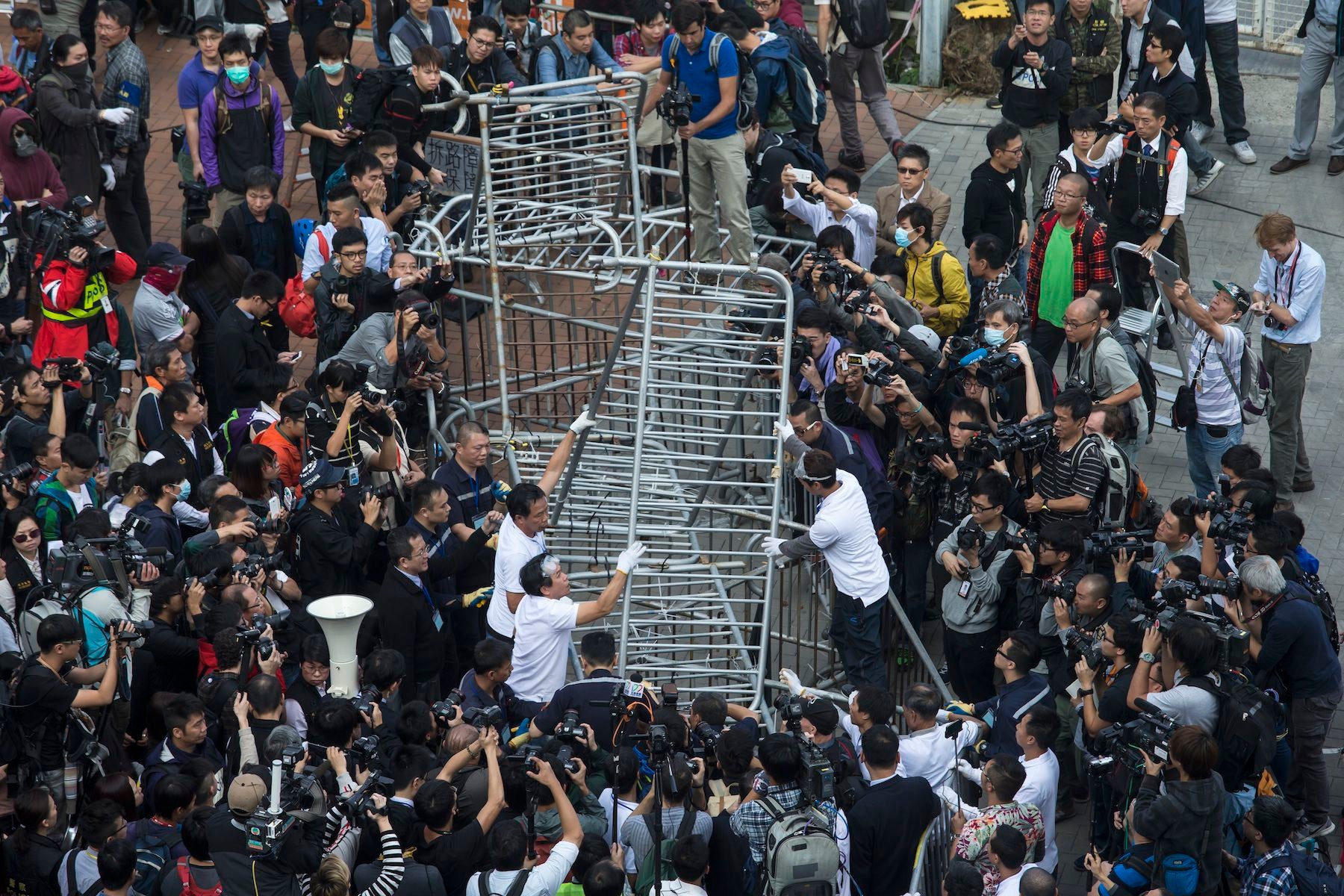
On Nov. 26, authorities demolished the Mong Kok camp after similar injunctions were granted to transport companies. Activists clashed with police and attempted to retake the site in the following days.
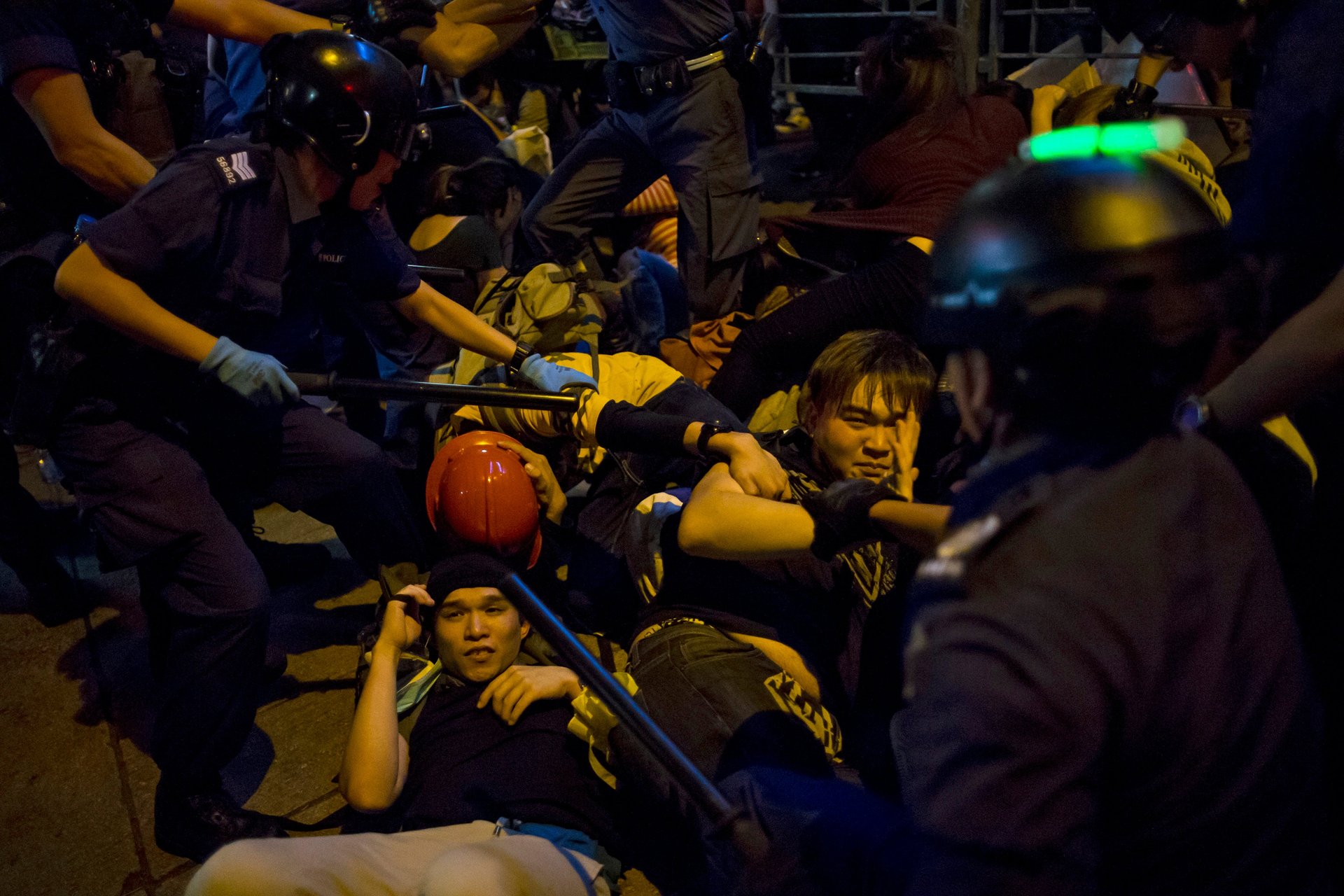
On Dec. 3, the three original co-founders of “Occupy Central” held a press conference, announcing their intention to surrender to police and urged students to retreat for their safety, though the protests had by that point long become a decentralized movement.
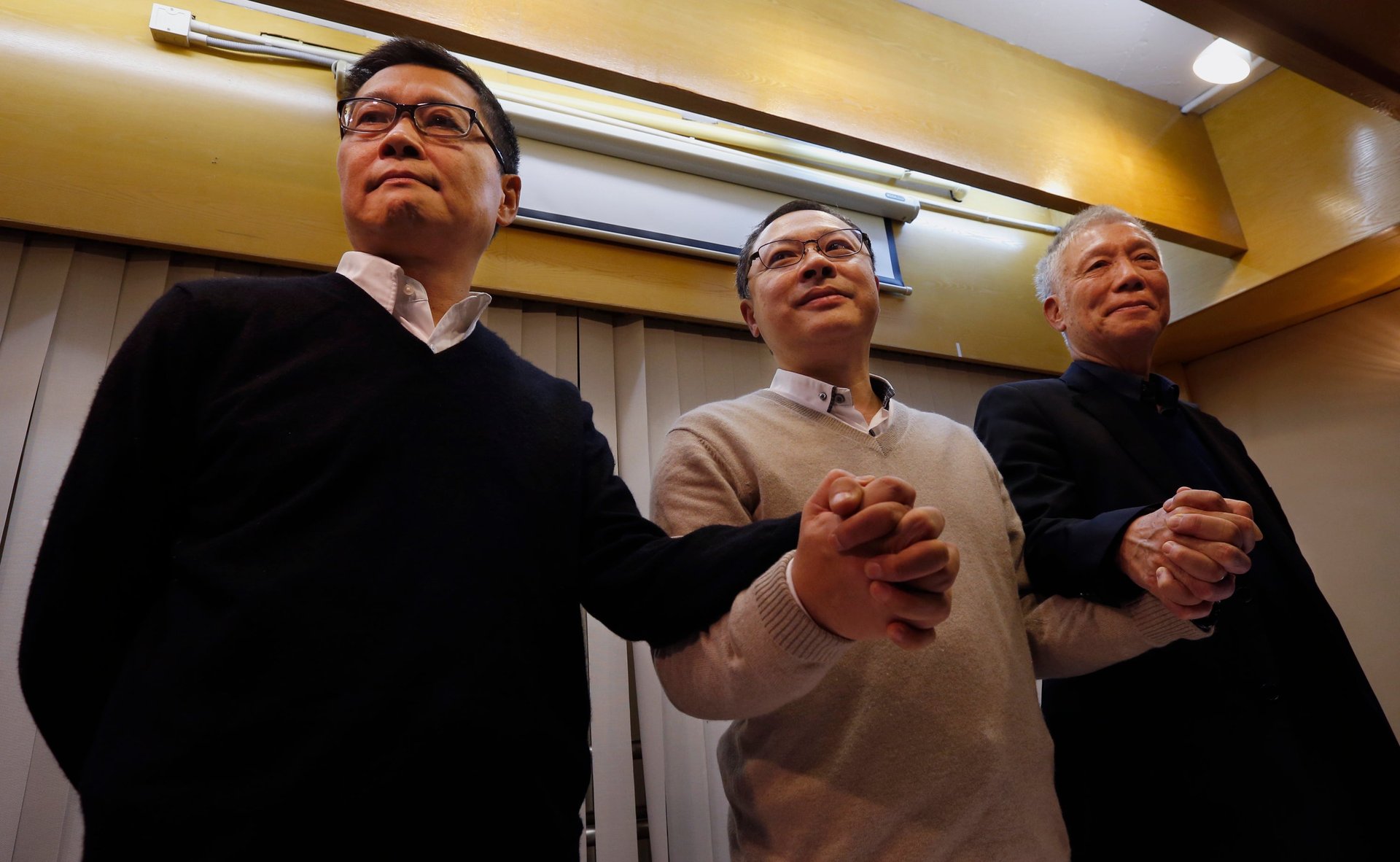
On Dec. 6, student leader Joshua Wong ended his four-day hunger strike. Wong, now 19, and two other student leaders were sentenced to community service last month for their roles in the protests.
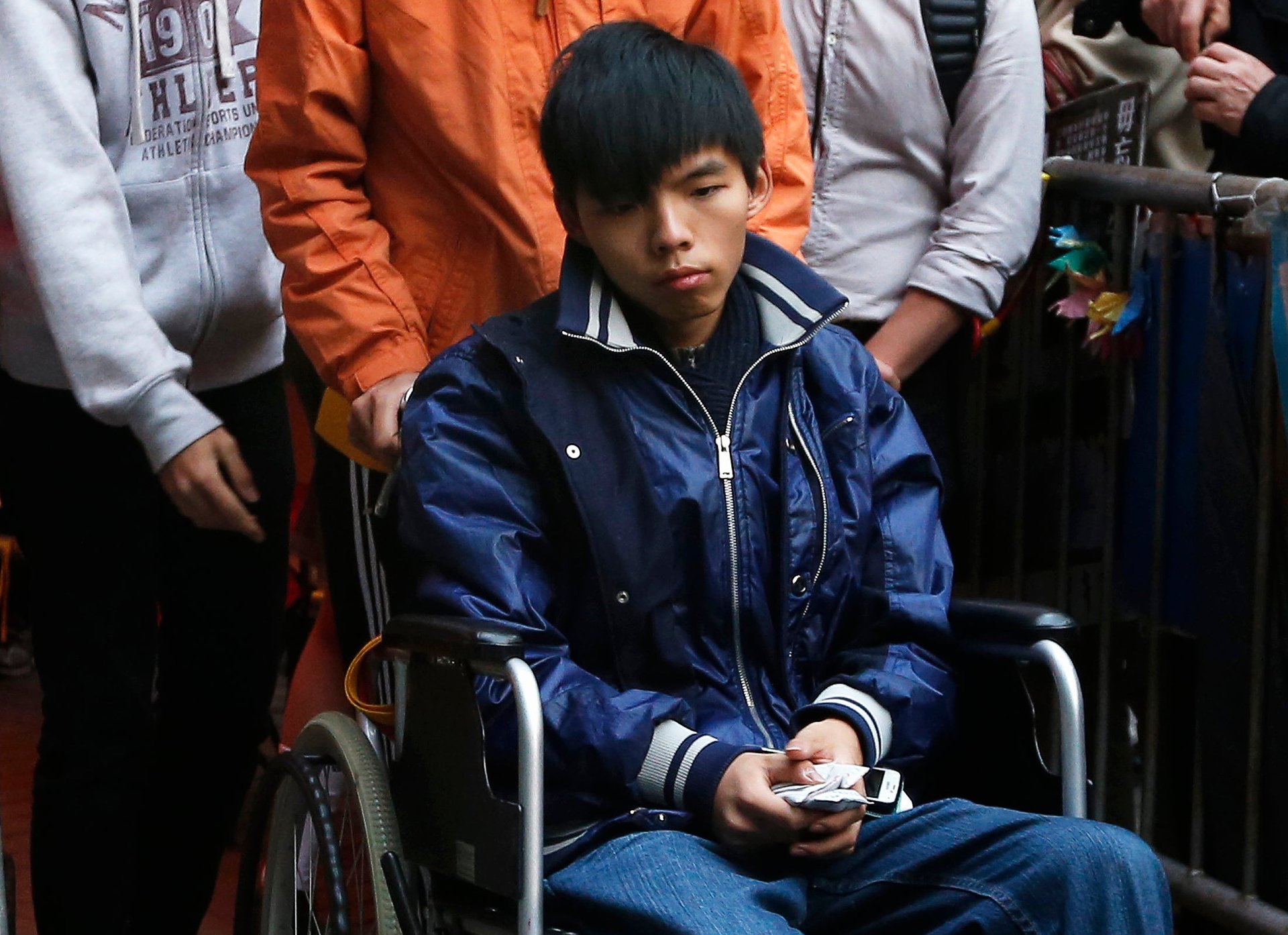
On Dec. 11, the main camp at Admiralty was entirely torn down by police. Protesters didn’t resist.
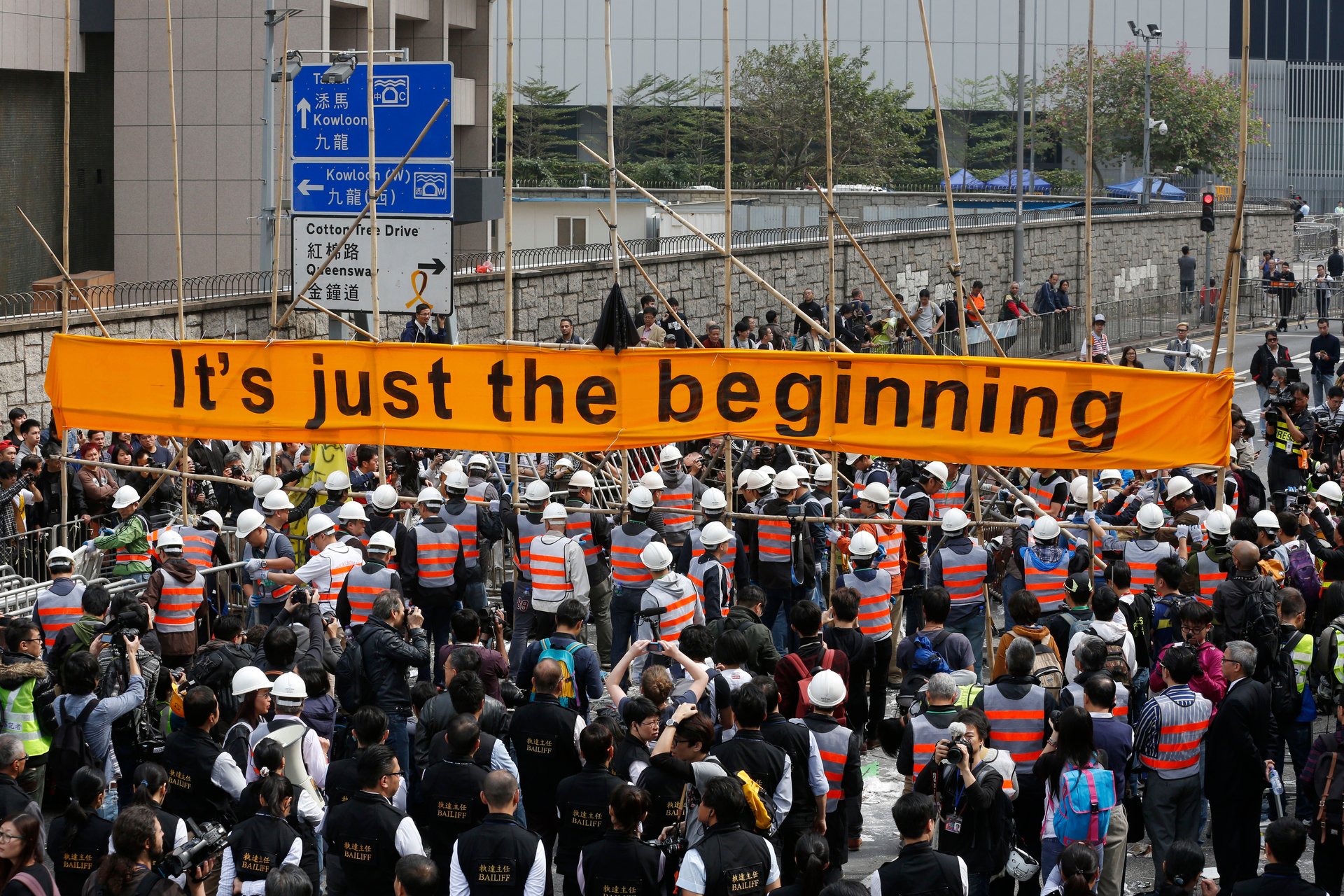
On Dec. 15, the last remaining site at Causeway Bay was dismantled by police, marking an end to the 79-day long protests.
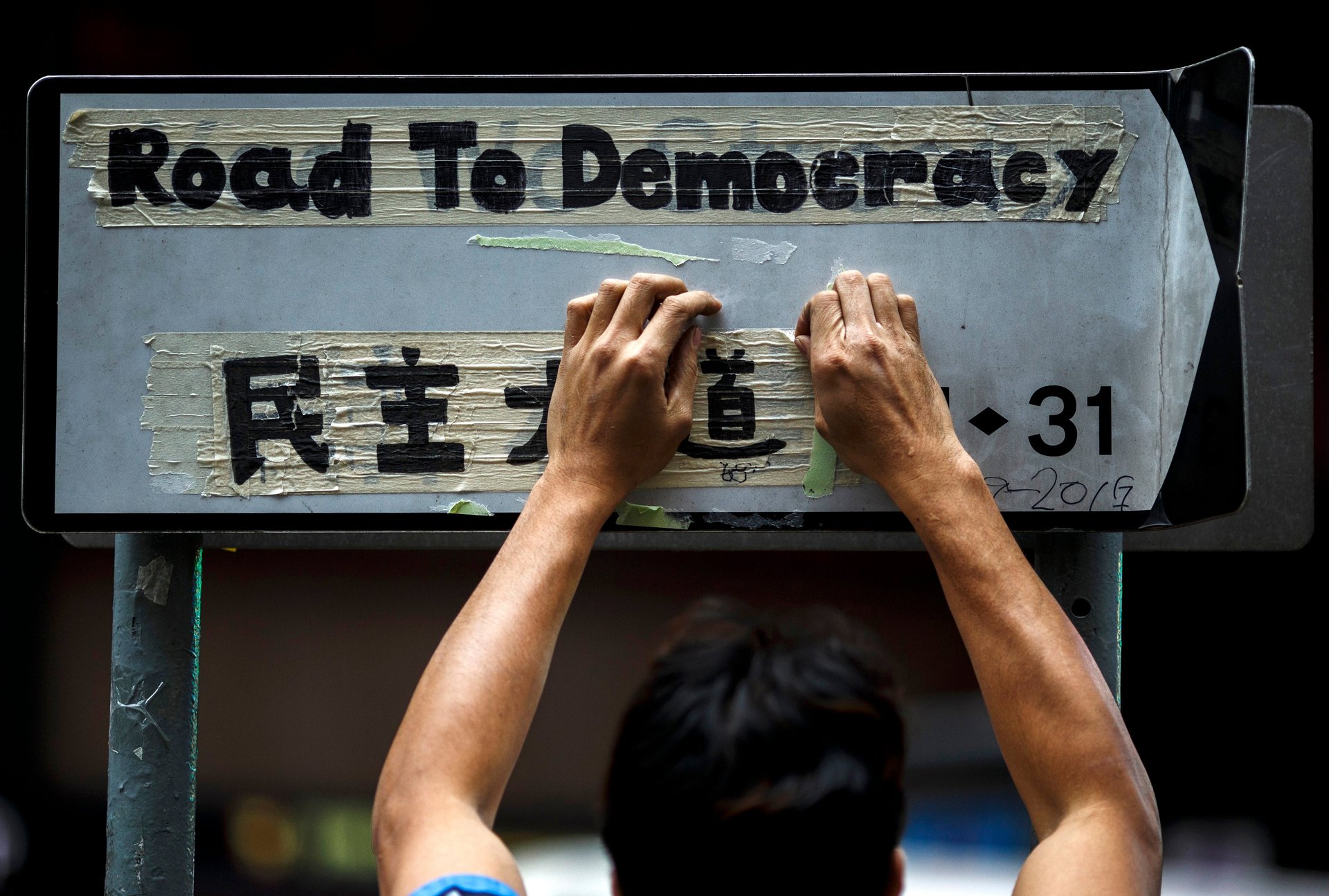
This week, one student leader, Nathan Law, shared a reflective photo from outside the Civic Square where it all started. This time, though, he’s got a pass to get in—he’s one of Hong Kong’s legislators.